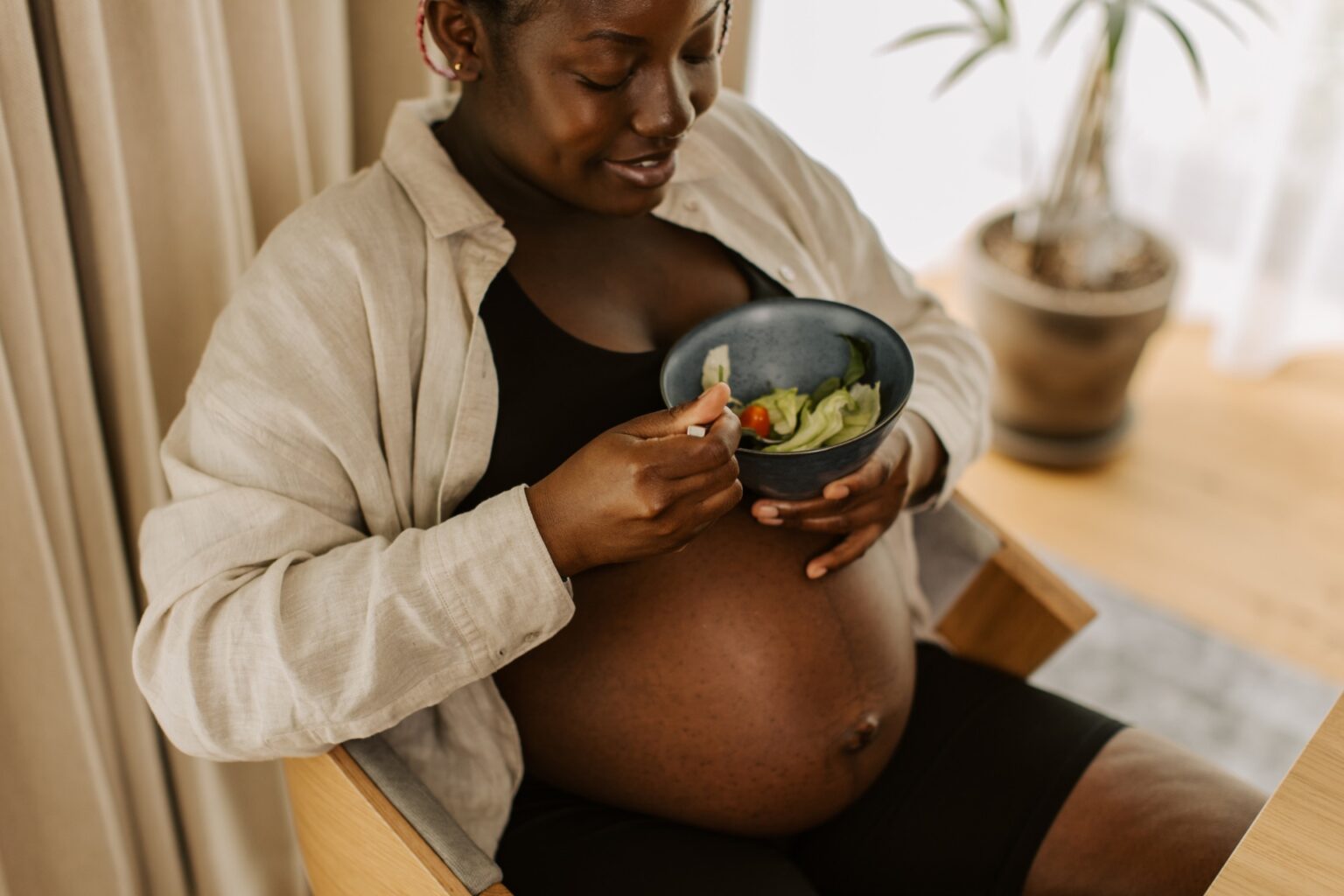While pregnancy cravings can make it seem like your appetite has increased, the phrase “eating for two” is actually quite misleading. While a pregnancy does demand an increase in caloric intake to support the growth and development of the baby, it doesn’t necessarily mean pregnant women need to double their calories.
The exact increase in calorie requirements during pregnancy depends on a number of factors, including pre-pregnancy weight, activity level and stage of pregnancy. The American College of Obstetricians and Gynecologists (ACOG) recommends an additional 340 to 450 calories per day during the second trimester and an additional 450 to 500 calories per day during the third trimester. So while you may feel your baby is screaming for that pint of ice cream, it’s not necessarily your body saying it needs more calories.
Here are some other tips for how to get the fuel you need during your pregnancy:
Prioritize balanced meals. Ensure you’re getting a variety of nutrient-rich foods to meet increased nutritional needs. This includes foods rich in protein, iron, calcium, folate and other essential vitamins and minerals. Eating a balanced diet that includes plenty of fruits, vegetables, whole grains, lean proteins and healthy fats is important for both the mother and the baby's health.
Practice mindful eating: Listen to your body and eat when you’re hungry, while being mindful of portion size.
Ask for help: A registered dietitian or nutritionist can help you develop a personalized nutrition plan that meets your individual needs during pregnancy.










